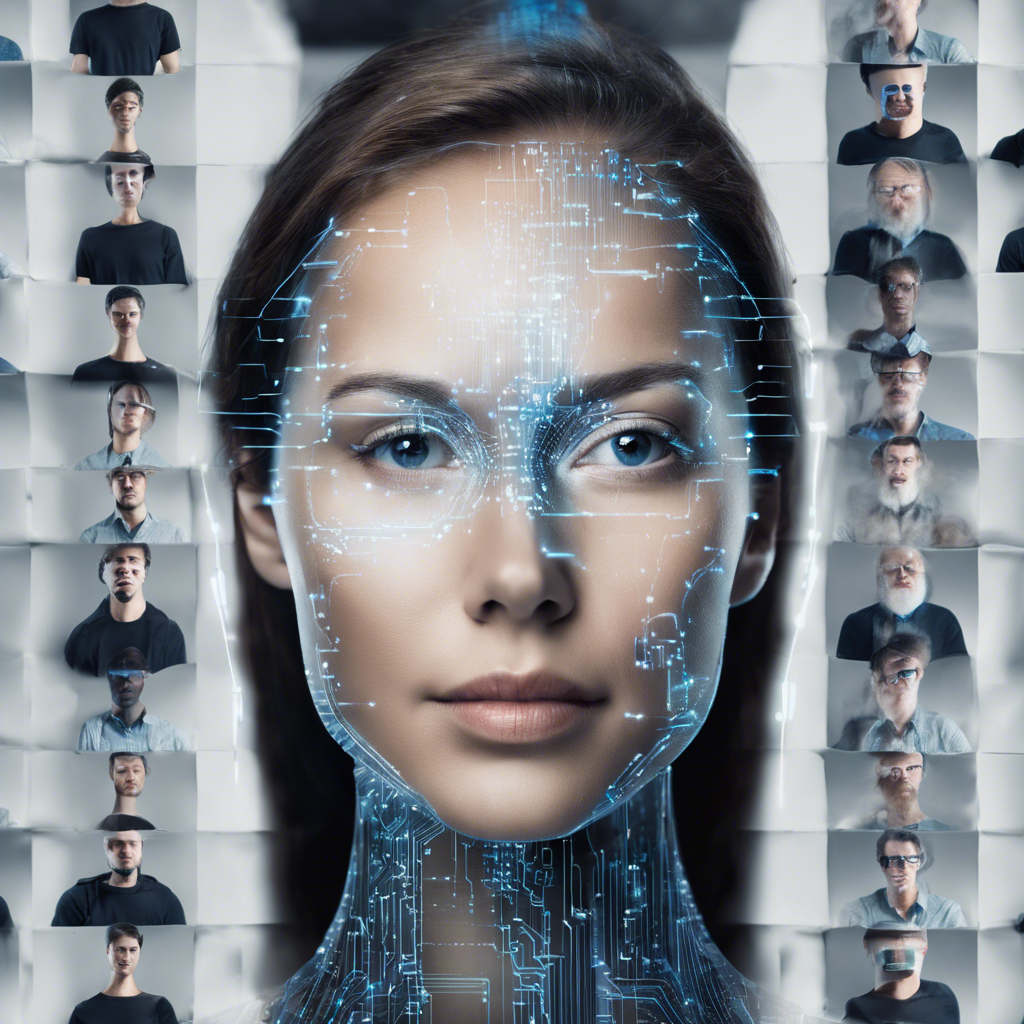Unmasking AI: The Hidden Biases in Facial Recognition Technology

Computer scientist Joy Buolamwini sheds light on the social implications of biased facial analysis systems in her new book, “Unmasking AI: My Mission to Protect What Is Human in a World of Machines.
In a world increasingly reliant on artificial intelligence (AI), computer scientist Joy Buolamwini has uncovered a disconcerting truth: facial recognition software is not as unbiased as we might think. Buolamwini’s research reveals that these systems exhibit biases that disproportionately harm marginalized communities. In her new book, “Unmasking AI: My Mission to Protect What Is Human in a World of Machines,” she explores the social implications of these biased technologies and calls for greater awareness and accountability. This article delves into the key findings of Buolamwini’s research and the urgent need to address the biases in facial recognition systems.
The Coded Gaze: Unveiling Bias in Facial Recognition
Buolamwini’s journey began during her time as a graduate student at MIT when she discovered that the facial recognition software she was working on failed to detect her dark skin. This experience led her to coin the term “coded gaze” to describe the biases embedded in technology. The coded gaze reflects who holds the power to shape AI and whose preferences and prejudices are inadvertently baked into these systems. Buolamwini’s research highlights the alarming consequences of biases in facial recognition software, particularly when it comes to reinforcing existing stereotypes.
The Impact of Biases in Facial Analysis Systems
Buolamwini’s research extends beyond her personal experience. She conducted tests on Stable Diffusion’s text-to-image generative AI system, which revealed striking biases. Prompts for high-paying jobs overwhelmingly generated images of men with lighter skin, while prompts for criminal stereotypes produced images of men with darker skin. These biases perpetuate harmful stereotypes and can have severe consequences, such as wrongful arrests based on facial recognition misidentification. Buolamwini warns that if left unchecked, these biases could harm millions of people and hinder progress in achieving equality.
The Root of Misidentification: Flawed Datasets
One of the key factors contributing to biases in facial recognition systems is the lack of representative datasets. Buolamwini discovered that many datasets used to train AI models were skewed towards lighter-skinned individuals and predominantly male. These datasets, considered gold standards in the field, fail to accurately represent the diversity of the real world. As a result, misidentification rates are higher for individuals who are less represented in these datasets, particularly dark-skinned individuals. Buolamwini’s research highlights the urgent need for more diverse and inclusive datasets to address these biases.
Gender Misclassification: Another Consequence of Biased AI
Buolamwini’s research also reveals biases in gender classification algorithms. Older women, in particular, are more likely to be misgendered by AI systems. The composition of gender classification datasets, often featuring predominantly lighter-skinned and conventionally feminine women, contributes to this bias. These biases perpetuate harmful gender norms and fail to reflect the diversity of gender identities and expressions. Buolamwini emphasizes the need to challenge these biases and ensure that AI systems accurately recognize and respect gender diversity.
From Research to Poetry: The Power of Art in Raising Awareness
Buolamwini’s unique approach to raising awareness about biased AI systems includes her poem and AI audit, “AI, Ain’t I a Woman?” This artistic endeavor humanizes the impact of misclassification and bias in facial recognition technology. By connecting the performance metrics of AI systems to the performance arts, Buolamwini enables audiences to empathize with the experiences of misclassified individuals. Her work has resonated globally, reaching unexpected audiences and sparking conversations about the ethical implications of AI.
Urging Action: Biometric Rights and Safeguarding Civil Rights
Buolamwini’s urgent message to President Biden and policymakers is to lead in preventing AI harms. She calls for the establishment of biometric rights, protecting individuals’ essence and likeness from exploitation. The executive order addressing algorithmic discrimination and the inclusion of human fallbacks in AI systems is a positive step towards safeguarding civil rights. However, Buolamwini emphasizes the need for continued progress in protecting individuals’ dignity and ensuring accountability in the development and deployment of AI technologies.
The Current and Immediate Harms of AI
Buolamwini cautions against solely focusing on the future potential harms of AI and neglecting the harm it can cause now. She highlights the structural violence perpetuated by AI systems, such as denying access to healthcare, housing, and a pollution-free environment. The integration of biased AI systems exacerbates existing inequalities and leads to real and immediate harm. Buolamwini urges society to recognize the impact of AI on marginalized communities and take immediate action to address these harms.
Conclusion:
Joy Buolamwini’s groundbreaking research and advocacy shed light on the biases embedded in facial recognition technology. Her work serves as a wake-up call, urging society to question the adoption of AI systems and demand greater transparency and accountability. By addressing the biases in facial analysis systems and protecting individuals’ biometric rights, we can ensure that AI technologies contribute to a more equitable and just society. It is imperative that we recognize the power of AI and harness it responsibly to protect the dignity and rights of all individuals.










